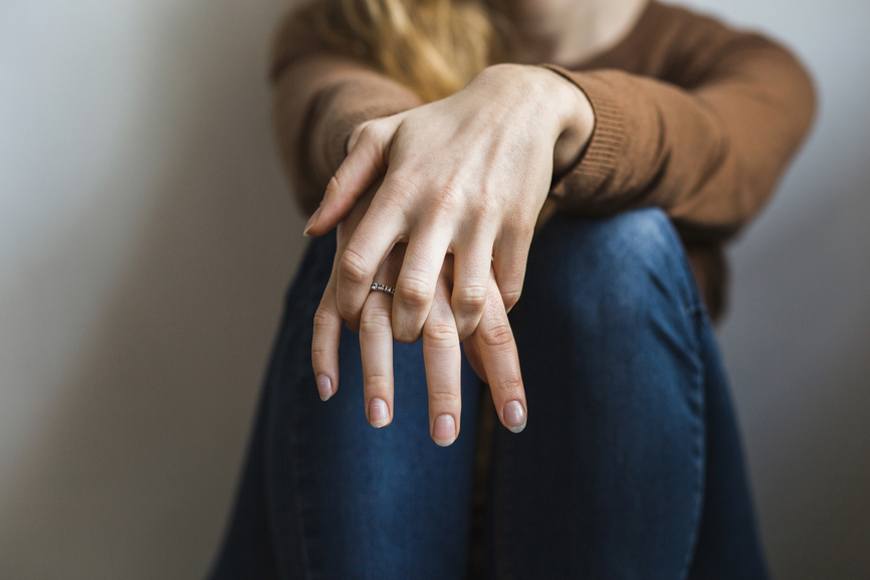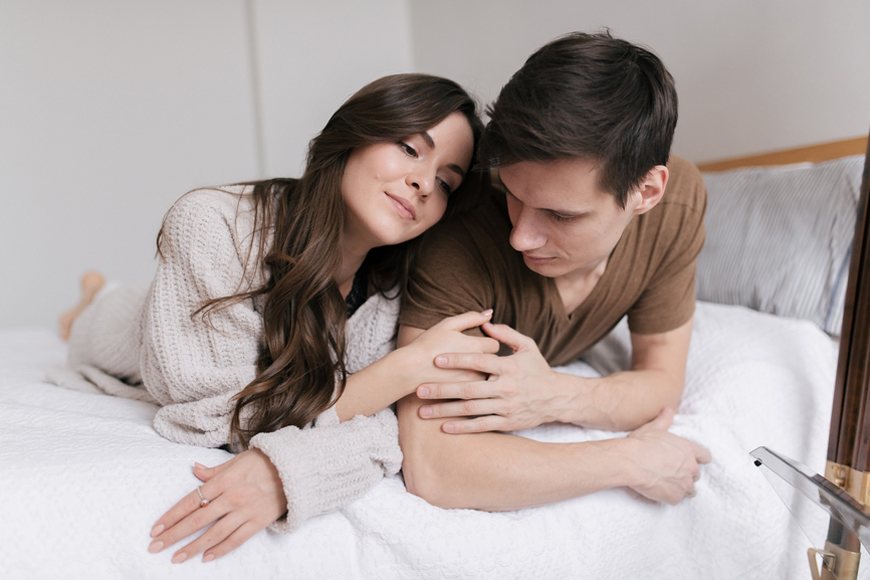9 Common Myths About Anxiety—and the Facts Everyone Needs to Understand Instead
It's widespread, too, affecting 40 million adults in the US each year and 30 percent of people at some point during their lives. And the current mental-health authenticity movement has proven no one is immune, no matter how outwardly successful they may be. (Just look at celebrities such as Kendall Jenner and Ellie Goulding, who have spoken out about their anxiety in order to help others realize they aren't alone.)
But while anxiety issues are being talked about like never before, there are still plenty of widely believed misconceptions out there. Rounded up here are some of the most common myths people believe about anxiety—and the truth about what can really help, straight from in-the-know mental health pros.
Scroll down for the reality behind some common misconceptions about anxiety.

Myth #1: There is no difference between anxiety and stress
Even with celebs like Selena Gomez, Bella Hadid, and Kristen Stewart dishing out anxiety realness in the media, it’s still easy to confuse the condition with run-of-the-mill nerves. While they’re both driven by a vague-but-intense feeling of impending doom, there are important differences between the two.

{{post.sponsorText}}
“Stress is almost always rooted in thoughts about a specific, identifiable external situation,” says psychotherapist Aimee Barr, LCSW. (Think an upcoming test, move, or job interview.) When the event passes, so does the uncomfortable, on-edge feeling. Anxiety, on the other hand, is more pervasive and consistent. It doesn’t require any external stimuli—often, those with anxiety can't pinpoint exactly why they're feeling anxious, so trying to pep-talk them out of it isn't going to be effective.
Myth #2: Anxiety is something you can just “grow out of”
Anxiety is a persistent state, explains therapist Kathryn Smerling, PhD. She says that when you tell someone that anxiety is something they'll eventually "grow out of," you're doing them a disservice because they may wait for things to get better instead of proactively seeking help.
In reality, the way anxiety presents itself may change over time, and so can the way someone copes with it. But Dr. Smerling says that doesn't mean the anxiety disappears—and it's important to take steps to treat it in order to find relief from its symptoms.

Myth #3: Anxiety is only a women’s illness
Anxiety often looks different on the surface for men and women—perhaps leading some to believe that it doesn't affect guys as frequently. "So many factors come into play, including social and cultural norms and stressors," says psychotherapist Courtney Glashow, LCSW. One study found that men were far more likely to experience outward anger and addiction in response to anxiety, while women were more likely to internalize their feelings.
"It seems likely that what one group calls anxiety (for women), another might call anger for men," explains wellness expert Sarah Wilson, author of anxiety memoir First, We Make the Beast Beautiful. The takeaway? If you or someone you love is experiencing a change in behavior, it's important to look beneath the surface to find out what's really going on.
Myth #4: Panic attacks are just drama
“Plain and simple: Panic attacks are absolutely not overreactions," says psychologist and anxiety expert Danielle Forshee, PsyD. Glashow agrees, saying: "They're a physiological and hormonal response the body has to protect itself from what it perceives as a threatening, scary, or stressful situation." The signs include intense physical symptoms such as chest pain, trouble breathing, dizziness, and sudden feelings of deep fear.
Panic attacks can be terrifying, so it's crucial to learn coping mechanisms to help you feel more prepared and in control when they strike—whether they're happening to you or a loved one. But this usually requires the help of a therapist. "What may well work for one person may not necessarily be the answer for another," says Barr. "Finding the right support is pertinent and will make the difference."

Myth #5: When someone is anxious, there’s nothing you can do to help
Watching someone you love experience anxiety can make you feel helpless, but Wilson says the key is showing them you care. “People suffering from anxiety often feel as if they are alone," she says. "Reaching out and letting them know they aren’t in it by themselves can be incredibly relieving.”
Instead of asking how you can help, she says taking action is more effective. “The same part of the brain that makes decisions is the same part that gets anxious," Wilson explains. So make arrangements for the two of you to go for a run, hit up a meditation class, or just hang out and talk. You'll likely be helping your pal more than you know.
Myth #6: Taking deep breaths will fix your anxiety
Anxiety can bring about a lot of different symptoms—dizziness, loss of balance, increased heart rate, nausea, chest discomfort or pain, choking sensations, and sweating. While certain breathing techniques may help, most people will need more than one coping mechanism depending on what they're experiencing, says Forshee. And if deep breaths don't do a thing for you, that doesn't mean you're out of options.
One expert advocates grounding to help regain your center, while others recommend muscle relaxation techniques, weighted blankets, magnesium supplements—the list goes on. The best way to live and thrive with anxiety is to be patient with yourself as you discover what works best for you, says Wilson.

Myth #7: Taking medicine for anxiety is a sign of weakness
There isn't a stigma when it comes to taking antibiotics for an infection or insulin for diabetes—and there shouldn't be one for taking anti-anxiety medication, either. In fact, one in six Americans does it, and it's helped many people get their lives back from crippling anxiety when lifestyle interventions aren't enough. "It's a sign of strength and self-awareness," says Barr, though she adds that medication can’t cure anxiety. In her professional experience, coupling meds with psychotherapy is the most successful way to pinpoint and treat the root cause of the condition.
Myth #8: If you have anxiety, medication is the only solution
That said, drugs aren't the only way to treat anxiety. “Taking medication may be helpful and even necessary for some people, but it's not needed for every single person," Glashow says. "It is possible to help someone feel less anxious without giving them medication." Smerling agrees. She says that movement, meditation, talk therapy, and journaling can all be part of anxiety management. Just like there's not a one-size-fits-all diet for everyone, there's not a blanket solution for anxiety either.

Myth #9: Your anxiety is the worst part about you
“Anxiety may be the tough to manage, but it’s the very thing that makes us grow,” says Wilson, who explains that over time she learned how to take her anxiety and make it beautiful. Similarly, Kait Hurley, a movement and meditation teacher says: “My anxiety wasn’t the enemy. It was my body talking to me and giving me information to help guide me. I know this is hard to believe, but I wouldn’t trade my anxiety for anything. It’s a gift, and it’s part of me."
It may not happen overnight, and it may not happen this month, but with time you will learn that your anxiety has a purpose, says Wilson. Talking openly and respectfully about mental illness can only help other sufferers. And remember this always: If you recognize in friends or loved ones signs of anxiety, remember that you can make a difference.
If you suffer from social anxiety in particular, here's what to do in every situation. Plus, find out why anxiety rates are higher than ever.
Loading More Posts...